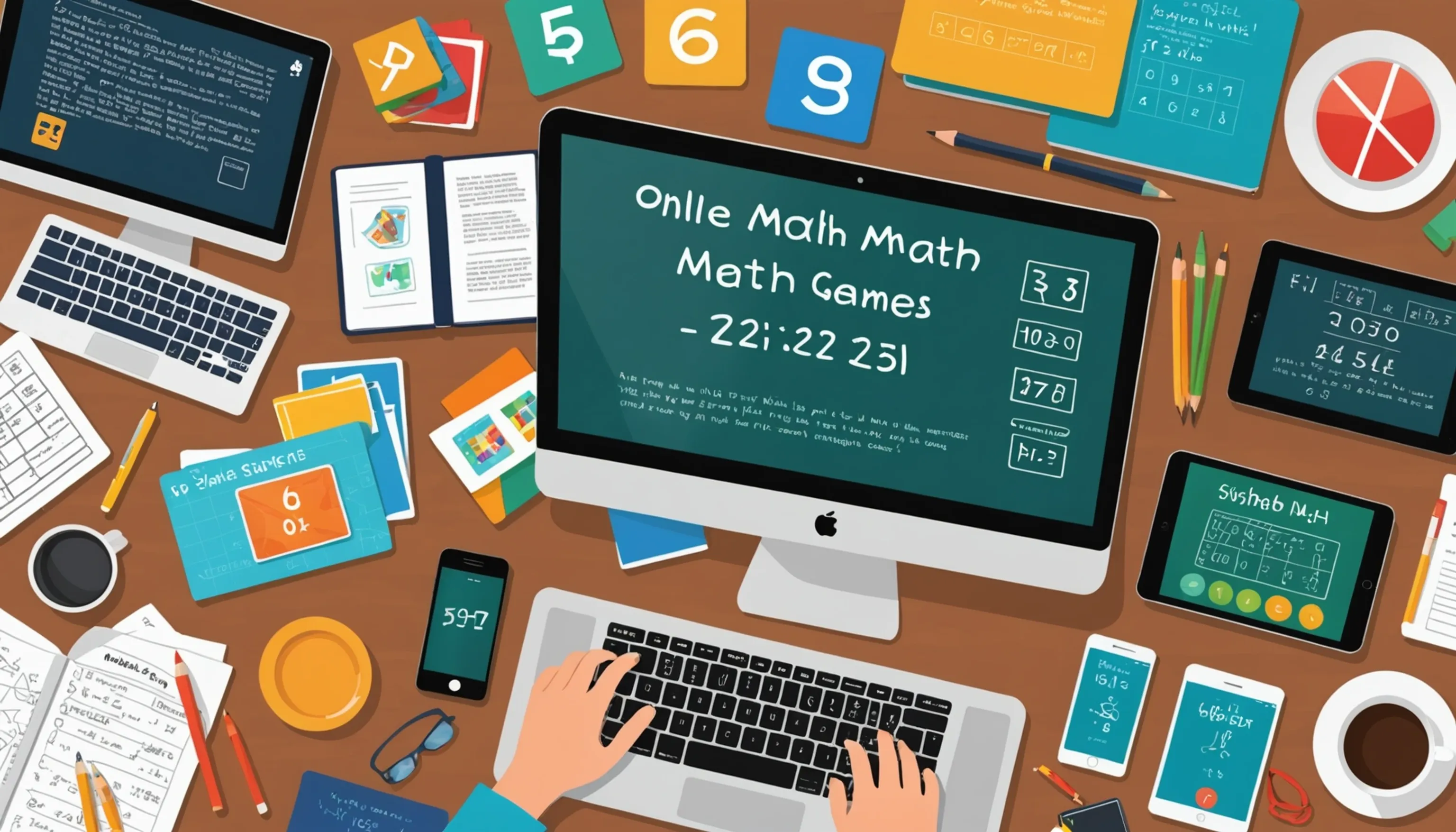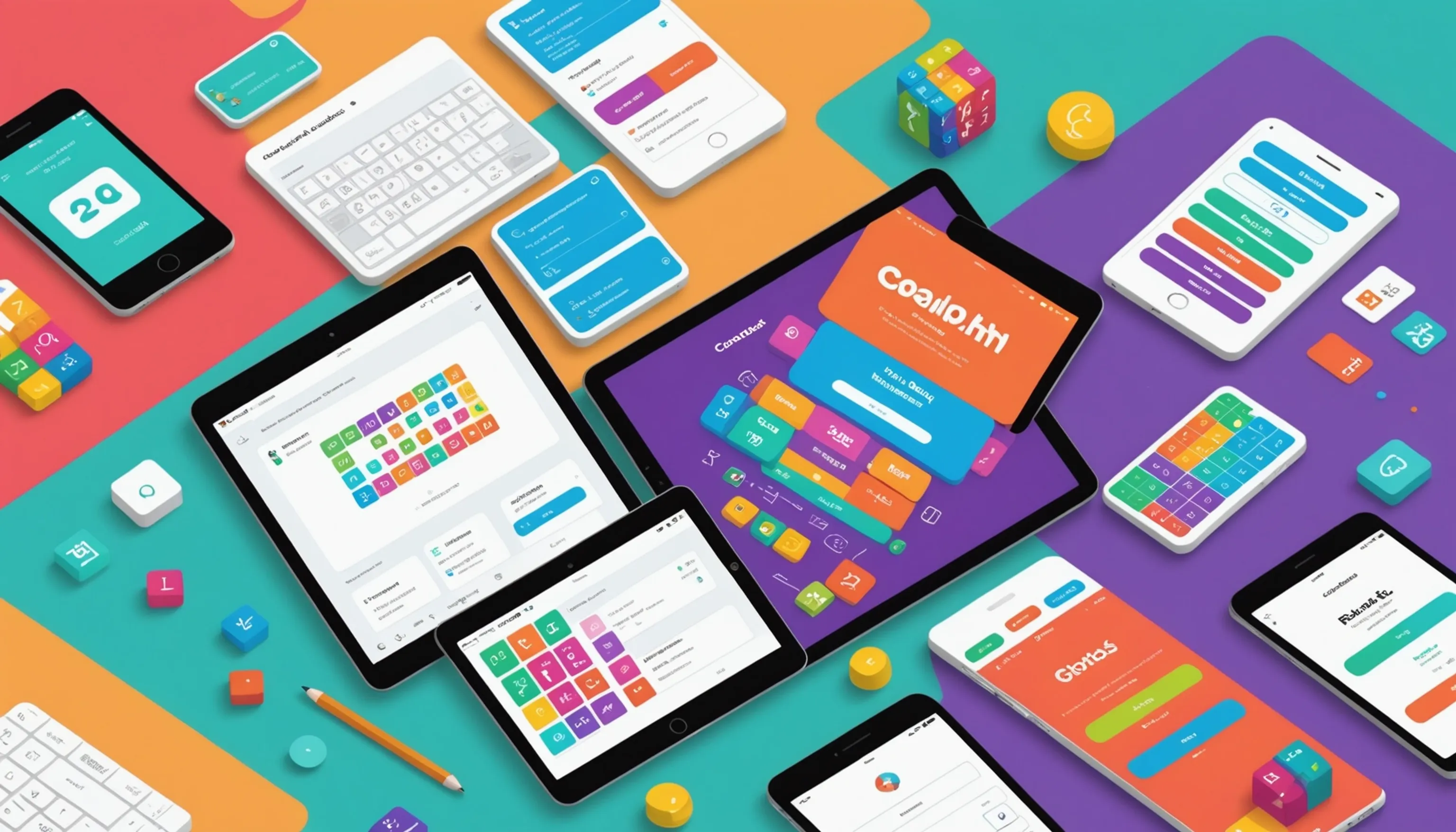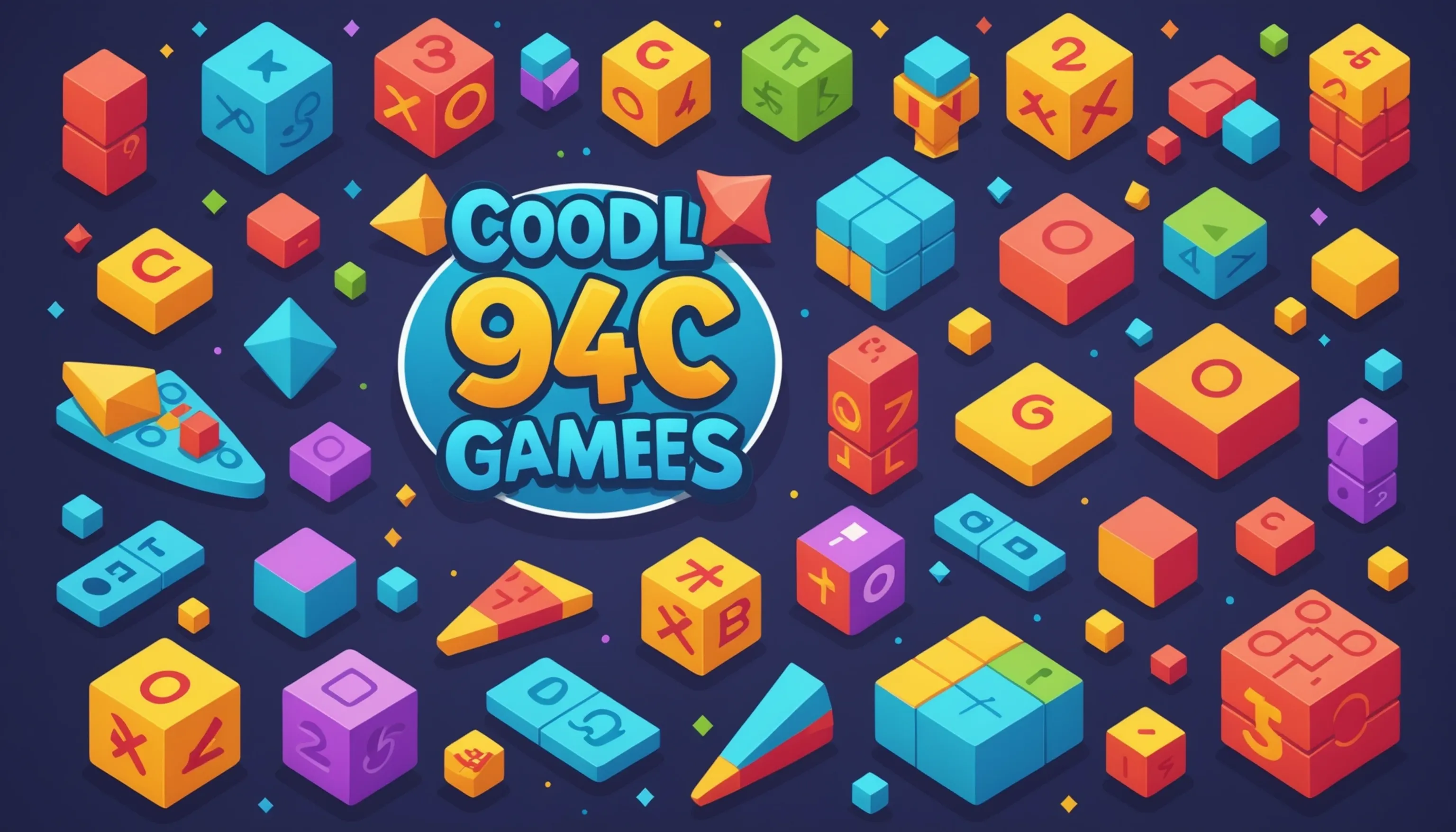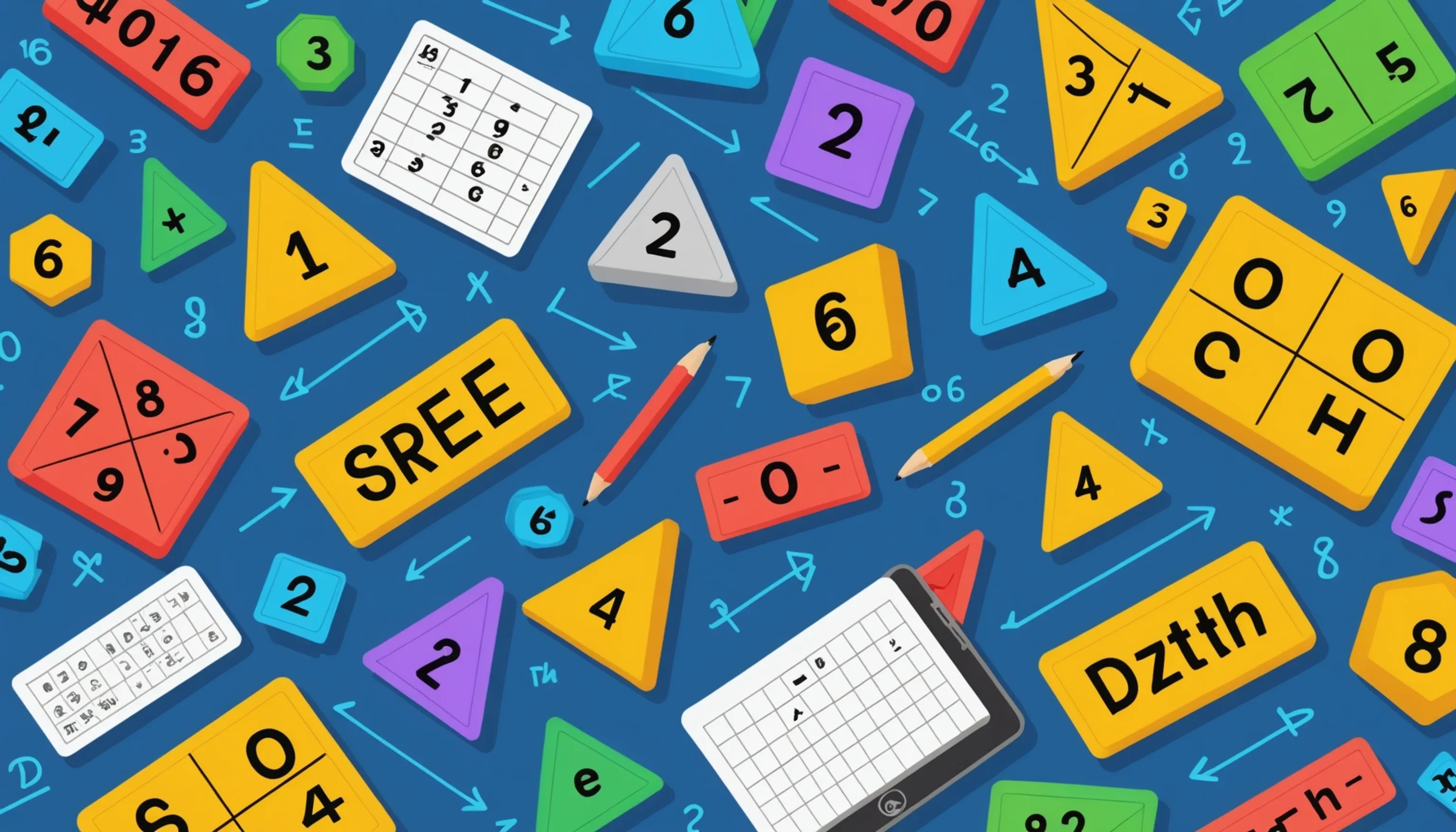Free Math Games Online for 6th Grade
 HvWHenry van Wagenberg
HvWHenry van Wagenberg
Best Free Math Games Online for 6th Grade
Finding the best free math games online for 6th grade can significantly enhance learning while making it enjoyable. Websites like Prodigy Math offer an engaging platform where students can practice math skills through interactive challenges. Another great option is Coolmath Games, which features a variety of puzzles that promote logical thinking and problem-solving. Lastly, Math Playground provides a wealth of resources including games that cater to different math topics, ensuring that students can find something that piques their interest. These platforms not only reinforce classroom learning but also encourage independent practice.
Why Math Games are Beneficial for 6th Graders
Math games have become an essential tool in the education of 6th graders, offering numerous benefits that go beyond traditional learning methods. First, these games provide a fun and interactive way to engage students in mathematics. When learning is enjoyable, students are more likely to participate actively and retain information.
Moreover, math games help develop critical thinking and problem-solving skills. As students navigate through various challenges, they learn to analyze situations, make decisions, and strategize to achieve their goals. This process not only enhances their math abilities but also fosters skills applicable in real-life scenarios.
Another significant advantage of math games is their adaptability to different learning paces. Each student can progress at their own speed, allowing for personalized learning experiences. For instance, a student struggling with fractions can focus on that specific area, while another can advance to more complex concepts like geometry.
Additionally, math games can serve as a bridge between home and school. Parents and teachers can encourage students to play these games to reinforce concepts learned in class. This collaboration between home and school creates a supportive learning environment that promotes academic success.
Finally, many math games provide instant feedback, allowing students to understand their mistakes and learn from them quickly. This immediate reinforcement helps build confidence and encourages a growth mindset, essential for mastering mathematics.

Top Free Math Games for 6th Graders
For parents and teachers looking to enhance math skills, here are some of the top free math games for 6th graders:
- Prodigy Math: This engaging game combines fantasy elements with math challenges, allowing students to compete while practicing skills aligned with their curriculum.
- Coolmath Games: Offering a variety of fun puzzles and brain teasers, this platform helps students develop logical thinking and problem-solving abilities.
- Math Playground: This site features games that cover a wide range of topics, from basic operations to more advanced concepts, making it suitable for diverse learning needs.
- Kahoot!: A game-based learning platform that allows teachers to create quizzes and interactive games that students can play together, fostering a collaborative learning environment.
These games not only make math enjoyable but also reinforce essential skills, preparing 6th graders for future academic success.
Prodigy Math
Prodigy Math is an exciting, game-based learning platform designed for students in grades 1 through 8, making it particularly beneficial for 6th graders. This interactive game combines math practice with a captivating fantasy world, where students can embark on quests and challenges while honing their math skills. With over 1,400 math skills aligned to curriculum standards, Prodigy ensures that students are engaged while learning relevant content.
One of the standout features of Prodigy Math is its adaptive learning technology. The game adjusts the difficulty of questions based on each student’s performance, ensuring that they are neither bored with overly simplistic questions nor overwhelmed by excessively challenging ones. This personalized approach helps to build confidence and mastery in various math concepts.
Additionally, Prodigy Math includes a rewards system that motivates students to continue playing and learning. As they progress, they earn in-game currency to customize their characters and unlock new features. This gamification aspect keeps students motivated and eager to improve their skills.
Teachers and parents can monitor students' progress through detailed reports that highlight strengths and areas needing improvement. This feature helps guide instruction and support at home, creating a collaborative learning environment. Overall, Prodigy Math is a valuable tool for 6th graders, making math practice engaging and effective.

Coolmath Games
Coolmath Games is a popular online platform that offers a wide variety of games designed to make learning math fun and engaging for students, especially 6th graders. With its unique approach, Coolmath Games focuses on logic, strategy, and problem-solving skills, providing an excellent supplement to traditional math education.
One of the key benefits of Coolmath Games is its diverse range of game types. Students can find everything from classic puzzles to modern challenges that incorporate math concepts in creative ways. Games like Run and Fireboy and Watergirl require players to think critically and apply mathematical reasoning to progress, making math practice feel less like a chore and more like an adventure.
Moreover, the platform is designed with an intuitive interface, allowing students to navigate easily and find games that match their interests and skill levels. This accessibility encourages independent exploration and learning, empowering students to take charge of their educational journey.
Coolmath Games also emphasizes a no-pressure environment, where students can play at their own pace without the stress of timed tests or strict grading. This relaxed atmosphere fosters a positive attitude toward math, helping students build confidence in their abilities.
Overall, Coolmath Games serves as an excellent resource for 6th graders, blending entertainment with education to make math enjoyable and engaging.
Math Playground
Math Playground is an invaluable online resource designed to support 6th graders in developing their math skills through interactive games and engaging activities. This platform combines educational content with fun gameplay, making it a favorite among both students and educators. With a wide range of games targeting various math topics, Math Playground caters to different learning styles and preferences.
One of the standout features of Math Playground is its emphasis on problem-solving and critical thinking. Many games require students to apply mathematical concepts in real-world scenarios, enhancing their understanding and retention of the material. For example, games like Math Jeopardy and Escape Room challenge players to solve problems under pressure, promoting quick thinking and effective decision-making.
Additionally, Math Playground offers instructional videos and puzzles that help clarify complex concepts, making it easier for students to grasp difficult topics. This combination of gameplay and educational resources creates a comprehensive learning environment that encourages exploration and curiosity.
Teachers and parents can also benefit from Math Playground’s user-friendly interface, which allows easy navigation and access to various resources. The website features sections for specific grade levels, ensuring that 6th graders are presented with age-appropriate challenges that align with their curriculum.
Overall, Math Playground is a fantastic tool for 6th graders, blending learning and fun to foster a positive attitude toward math and enhance academic performance.
Tips for Using Math Games Effectively
To maximize the benefits of math games for 6th graders, consider these tips:
- Set Clear Goals: Define specific learning objectives before starting the games to keep students focused.
- Balance Game Time: Ensure that game play complements traditional study methods, avoiding excessive screen time.
- Monitor Progress: Regularly check students' performance and engagement levels to adapt their learning experience.
- Encourage Collaboration: Promote group play to foster teamwork and social skills while solving math challenges together.
- Provide Feedback: Discuss game outcomes and strategies with students to reinforce learning and address challenges.
Setting Goals for Game Play
Setting clear and achievable goals for game play is essential for ensuring that 6th graders gain the most from their math gaming experience. By establishing specific objectives, students can stay focused and motivated while playing educational games. Here are some effective strategies for setting goals:
1. Identify Learning Outcomes: Begin by determining which math concepts or skills need reinforcement. Whether it’s fractions, geometry, or problem-solving strategies, clarify what you want students to achieve through gameplay.
2. Set SMART Goals: Make sure goals are Specific, Measurable, Achievable, Relevant, and Time-bound. For instance, a goal could be to improve accuracy in solving fraction problems by 20% over the next month.
3. Break Down Goals: Divide larger objectives into smaller, manageable tasks. This approach allows students to experience success more frequently, boosting confidence and motivation.
4. Track Progress: Encourage students to keep a log of their achievements in the games. This tracking can include scores, levels completed, or skills mastered, providing visible evidence of their growth.
5. Celebrate Milestones: Recognize and celebrate when students reach their goals. This acknowledgment can reinforce their efforts and encourage continued engagement with math games.
By setting clear goals for game play, educators and parents can create a structured and purposeful gaming experience that enhances learning and fosters a positive attitude toward math.
Balancing Game Time with Study Time
Balancing game time with study time is crucial for 6th graders to ensure they benefit from educational math games without compromising their overall learning experience. Here are some strategies to help achieve this balance:
1. Establish a Schedule: Create a structured daily or weekly schedule that allocates specific time slots for both game play and traditional study. For instance, students could spend 30 minutes on math games after completing their homework, making it a reward for their hard work.
2. Set Time Limits: Use timers to limit the duration of game play. This approach helps students develop self-discipline and understand the importance of time management. For example, a 20-minute game session can be followed by 15 minutes of focused study on a challenging math topic.
3. Integrate Game Play with Study: Encourage students to use math games that reinforce the concepts they are currently studying in class. This integration helps solidify their understanding while making learning enjoyable.
4. Monitor Engagement: Pay attention to students' engagement levels. If they seem distracted or overwhelmed by games, it may be time to adjust the balance. Regular check-ins can help gauge their enthusiasm for both game play and study.
5. Encourage Reflection: After game sessions, prompt students to reflect on what they learned and how it applies to their studies. This reflection reinforces the connection between game play and academic growth.
By effectively balancing game time with study time, students can enjoy the benefits of educational games while maintaining a strong foundation in their math skills.
